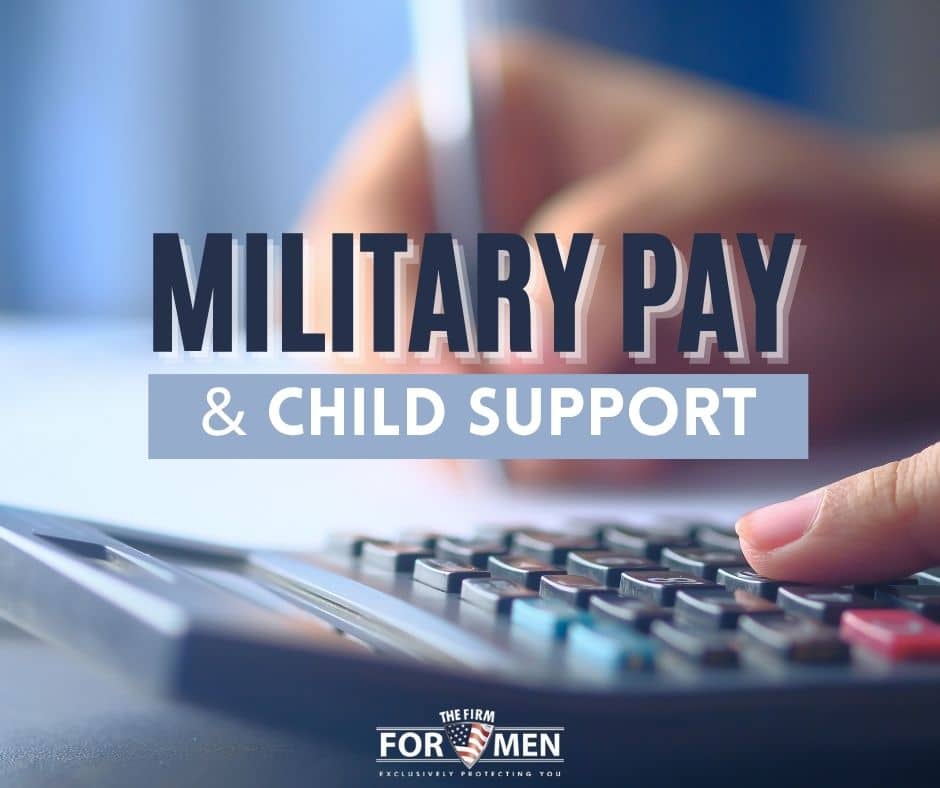For military service members in Virginia, child support calculations can feel confusing — especially when your pay comes from multiple sources. Between basic pay, allowances, incentive bonuses, and veterans’ benefits, you may wonder what counts as income for support purposes.
The answer? Almost everything. Virginia law casts a wide net when defining income for child support. Whether your compensation is taxable or not, chances are it’s included.
This guide breaks down how Virginia family courts treat military pay, what the law says about income, and how to protect your financial future while supporting your children.
Jump to a Section
- Understanding Military Pay Categories
- What the IRS Considers Taxable Military Income
- How Virginia Defines “All Income” for Child Support
- Which Military Benefits Are Counted
- How to Reduce Your Financial Exposure
- What Not to Do With Military Pay
- Why Legal Guidance Is Essential
Understanding Military Pay Categories
Military pay falls into three main categories, with some additional subtypes that often cause confusion:
- Basic Pay: The foundation of military compensation, based on rank and years of service.
- Special and Incentive Pay: Extra compensation for qualifications or duties such as flight pay, submarine pay, or hazardous duty pay.
- Allowances: Non-taxable payments for specific needs such as food (BAS) or housing (BAH).
- Continuation Pay and Bonuses: Mid-career retention bonuses, enlistment, and re-enlistment bonuses that boost gross income.
While these payments serve different purposes, Virginia courts generally consider all of them when calculating child support.
What the IRS Considers Taxable Military Income
For tax purposes, not all military pay is taxable. According to IRS Publication 525, payments received as part of active service are usually treated as wages, except for certain allowances.
Taxable income includes:
- Differential wage payments from employers while on active duty
- Military retirement pay (based on age or service length)
- Qualified Reservist Distributions (QRD)
Non-taxable military benefits include:
- Education and subsistence allowances
- Disability compensation and pensions
- Grants for adaptive housing or vehicles
- Veterans’ insurance dividends
- Death gratuity payments
- Combat zone bonus payments from states
Even though many of these are tax-exempt, Virginia’s child support laws don’t exclude them. The Commonwealth’s standard is broader than the IRS definition of income.
How Virginia Defines “All Income” for Child Support
Virginia Code §20-108.2 governs child support and makes its position clear:
“Gross income means all income from all sources…”
That includes:
- Salaries, wages, commissions, and bonuses
- Pensions, interest, annuities, and capital gains
- Social Security, unemployment, and workers’ compensation
- Veterans’ benefits
- Spousal support, rental income, gifts, and prizes
In other words, Virginia courts count nearly every form of compensation — even if it’s tax-free or irregular.
Which Military Benefits Are Counted
The Commonwealth’s “count-it-all” approach means most military pay is included in your child support calculation, such as:
- Basic Pay (always included)
- Allowances like BAH and BAS
- Special Duty or Hazard Pay
- Re-enlistment and Continuation Bonuses
- Retirement Pay and Disability Compensation
- Veterans’ Benefits and Education Stipends
Even lump-sum payments, like retroactive bonuses or incentive awards, may be divided and factored into your average monthly income.
How to Reduce Your Financial Exposure
While Virginia’s law is comprehensive, an experienced Virginia family law attorney can help ensure your obligation is fair.
Here’s how:
- Petition for deviations to account for high travel costs from your station to your child’s home.
- Establish trusts or custodians for Servicemembers’ Group Life Insurance (SGLI) benefits to support your children while keeping control of funds.
- Negotiate realistic support terms that consider deployment and housing costs.
Your lawyer can advocate for adjustments within the legal framework — ensuring that your contributions remain equitable and sustainable.
What Not to Do With Military Pay
Tempted to “set aside” certain pay or omit allowances to reduce your support calculation? Don’t.
Hiding income from the court or your attorney can result in:
- Legal penalties for contempt or fraud
- Damage to your credibility in court
- Larger financial obligations later
Your attorney’s duty is to protect your interests while remaining transparent with the court. Hiding pay only risks severe consequences — and ultimately harms your children’s financial stability.
Why Legal Guidance Is Essential
Child support orders can last a decade or longer. The details you establish now affect your finances, your relationship with your children, and your peace of mind for years to come.
At The Firm For Men, our attorneys specialize in representing Virginia military members in divorce and child support matters. We understand the nuances of military compensation systems and how to present them properly in family court.
Contact our Virginia Beach office today at (757) 383-9184, or reach out online for a confidential consultation.
The Firm For Men — Defending Men’s Rights, Protecting Their Futures.

